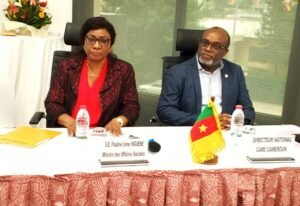Close to 30 online journalists and bloggers have bettered their skills in safety and protection in the course of sensitive and complex coverages.
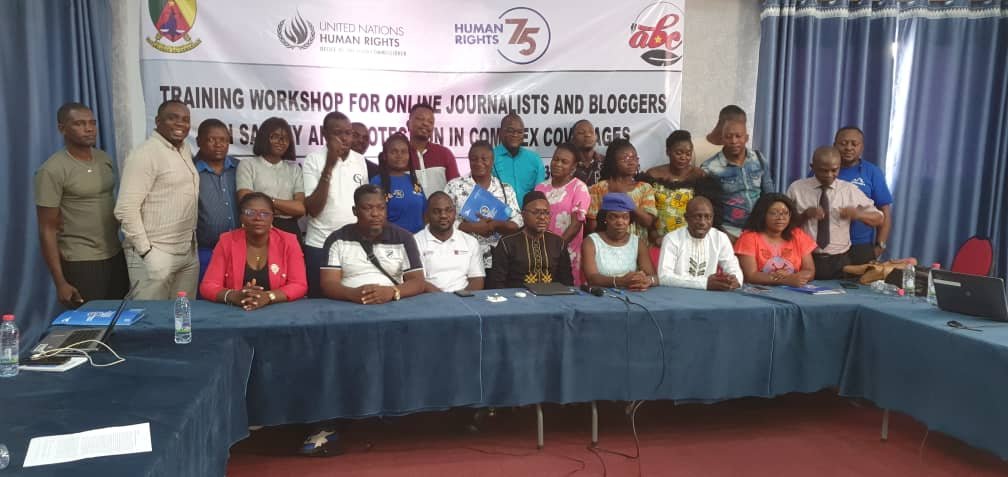
Douala, the economic city of Cameroon, hosted a three-day training workshop that brought together close to 30 online journalists and bloggers from the 27th to the 31st of May 2024.
Organized by the United Nations Centre for Human Rights and Democracy in Central Africa, UNCHRD-CA, in partnership with the Cameroon Association of Bloggers (ABC), the Douala workshop came in as a continuation process of the training session held in Ebolowa, South region from February 27-29, 2024.
The same cohort of online journalists and bloggers upskilled on reporting human rights stories in Ebolowa, were this time around subjected to an intensive training that mainly focused on safety and protection online and off-line as many engage themselves in the coverage of sensitive events such as conflicts and crises that upsurge some regions of Cameroon.
Stakes of the training workshop
One of the key recommendations of the training workshop held in Ebolowa, South region of Cameroon from the 27th to the 29th of February 2024, was to equip online journalists and bloggers as new members of the network of Human Rights on safety and protection besides some old members who have not received this training.
As stated by the UNCHRD-CA that has created since 2015 this network over 80 journalists today, the overall objective of the Douala workshop is to reduce safety and security incidents involving members of the human rights reporters’ network to very minimal levels while enhancing protection.
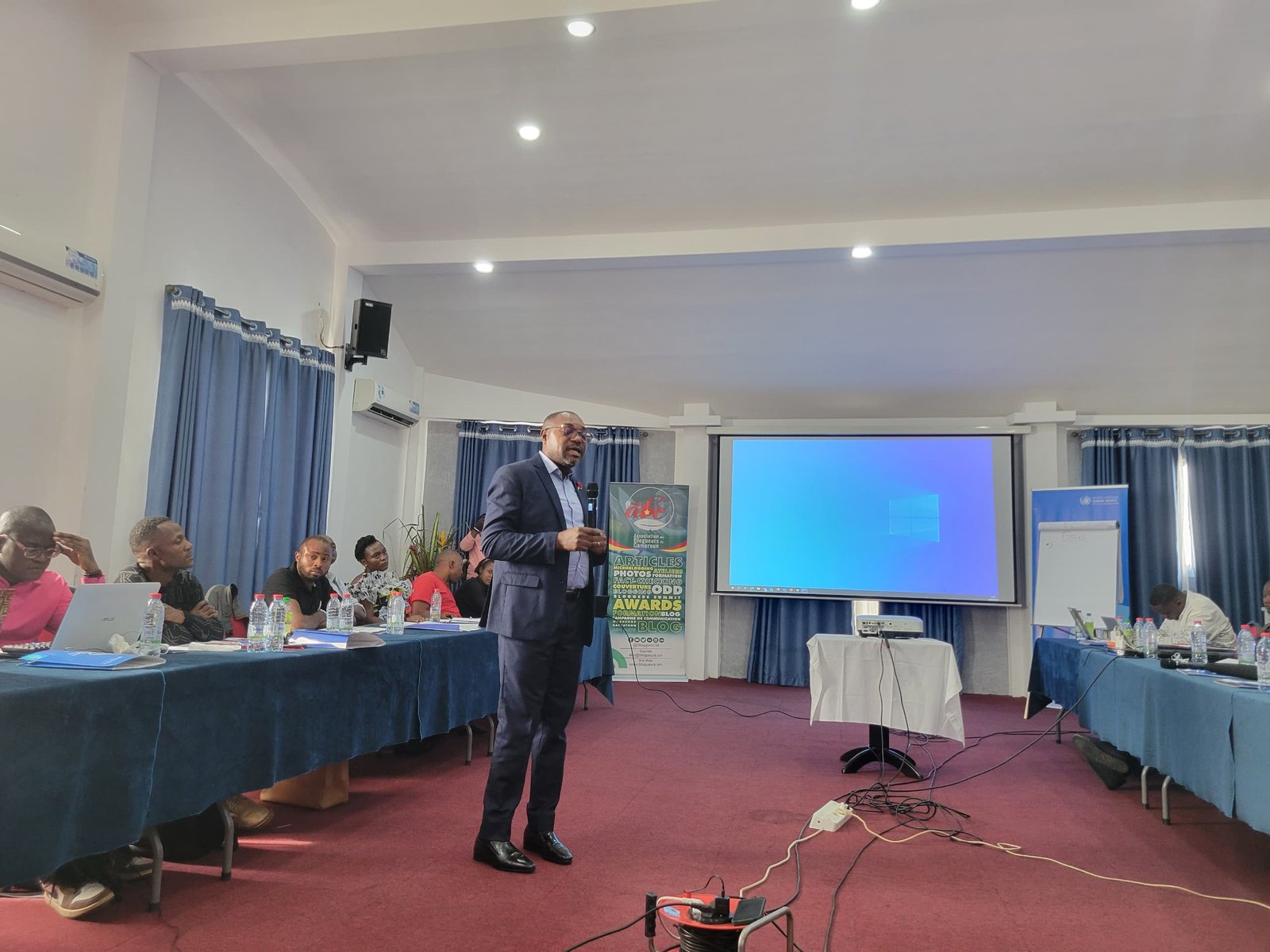
Speaking to the participants, Human Rights officer at UNCHRD-CA, Kiven Fonyuy said: “Some two months ago we trained online journalists and bloggers on reporting on human rights stories, and during this training in Ebolowa, one of the main recommendations was to equip them with protection skills when they are covering sensitive events. We also understood that as new members of the Human Rights Journalists network, they need to master safety skills when they are covering events with a complex connotation.”
Mainstreaming protection of media professionals
The close to 30 participants whose skills were sharpened in human rights reporting were granted several tips and tools necessary for their protection in the course of duty.
Mr. Dimitte, one of the trainers from the UNCHRD-CA had an interactive session with participants on the protection challenges faced by media professionals and they examined the causes, consequences, and ideas for strengthening their protection.
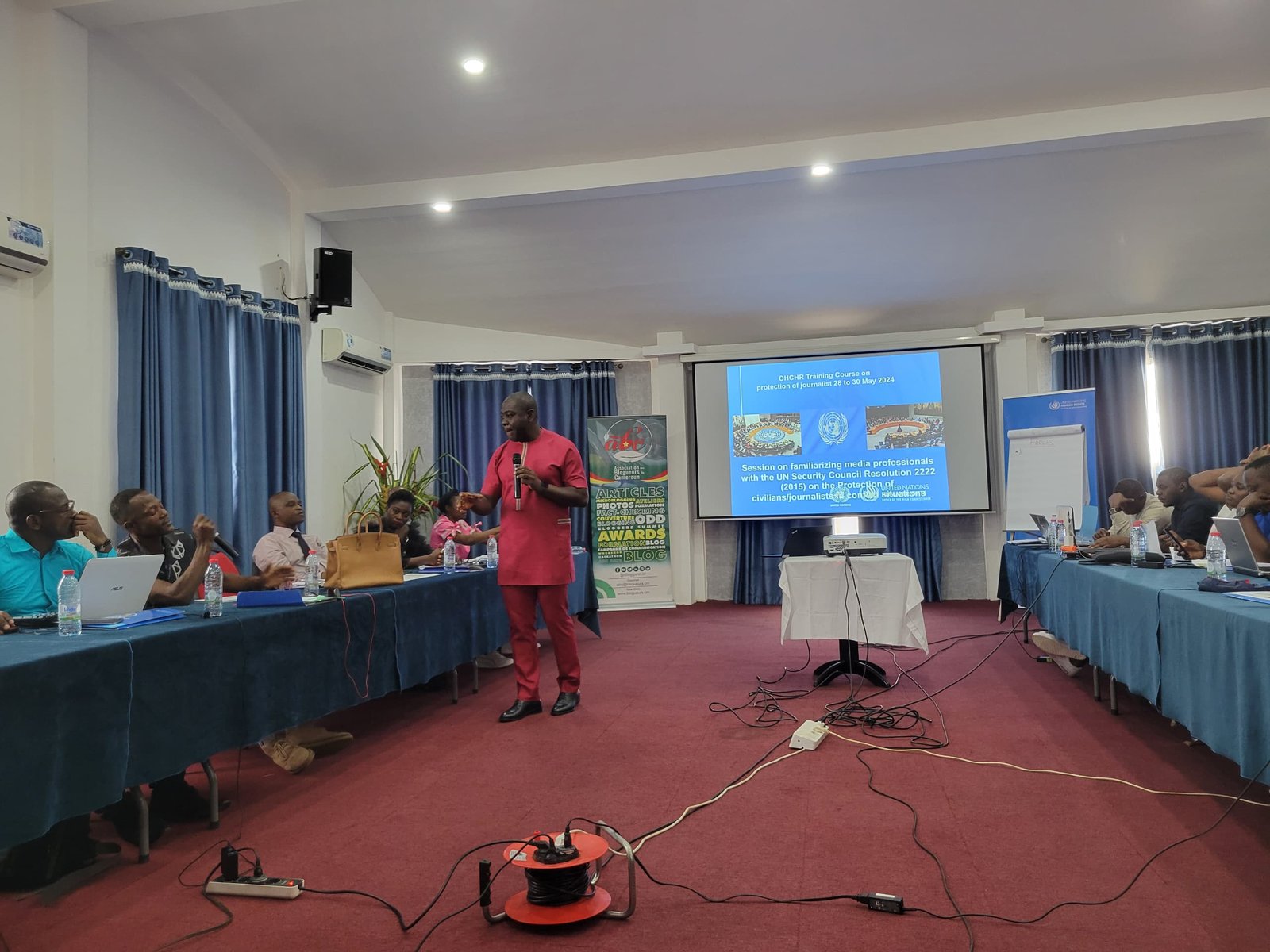
Another key presentation that was highlighted during the training was that animated by Mr. Kiven Fonyuy on the: strengths, weaknesses, opportunities, and threats linked to coverage of sensitive events. This session was a collective assessment of issues that are worth reporting and the added value it could bring for both these online journalists and bloggers who find themselves in sensitive areas.
Apart from the fact that participants were given rudiments on human rights reporting during crises, they were equally granted some techniques to adopt and that will forge them when faced with hindrances.
Fredric Takang, a veteran Journalist working with BBC Africa in Cameroon shared some best practices with his peers during this workshop. He mostly focused on a practical case study that emanates from the current conflict plaguing the North-West and South-West regions, and where he covers many human rights stories.
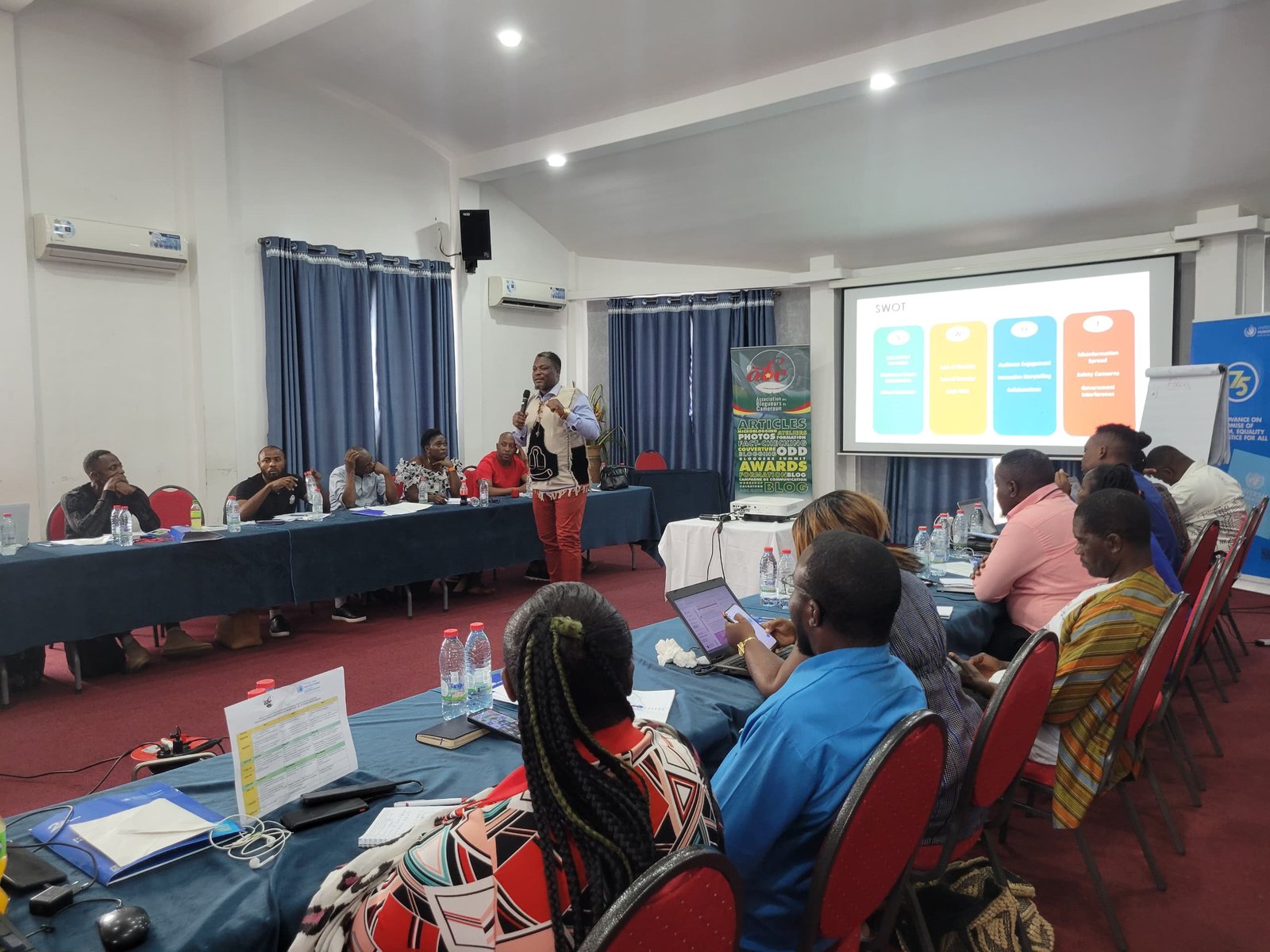
The intensive training session was also spiced with some issues experienced on the field by the correspondent of the renowned media outlet and his peers who brought to the limelight some problems encountered on the field while on coverage in some complex situations.
Participants at the workshop also had an interesting session on a topic that many ignored its existence, that is the UN Security Council Resolution 2222 of 2015 granting protection of journalists/civilians in conflict situations. Thanks to this session, many upgraded their knowledge of the “dos and don’ts” of media professionals.
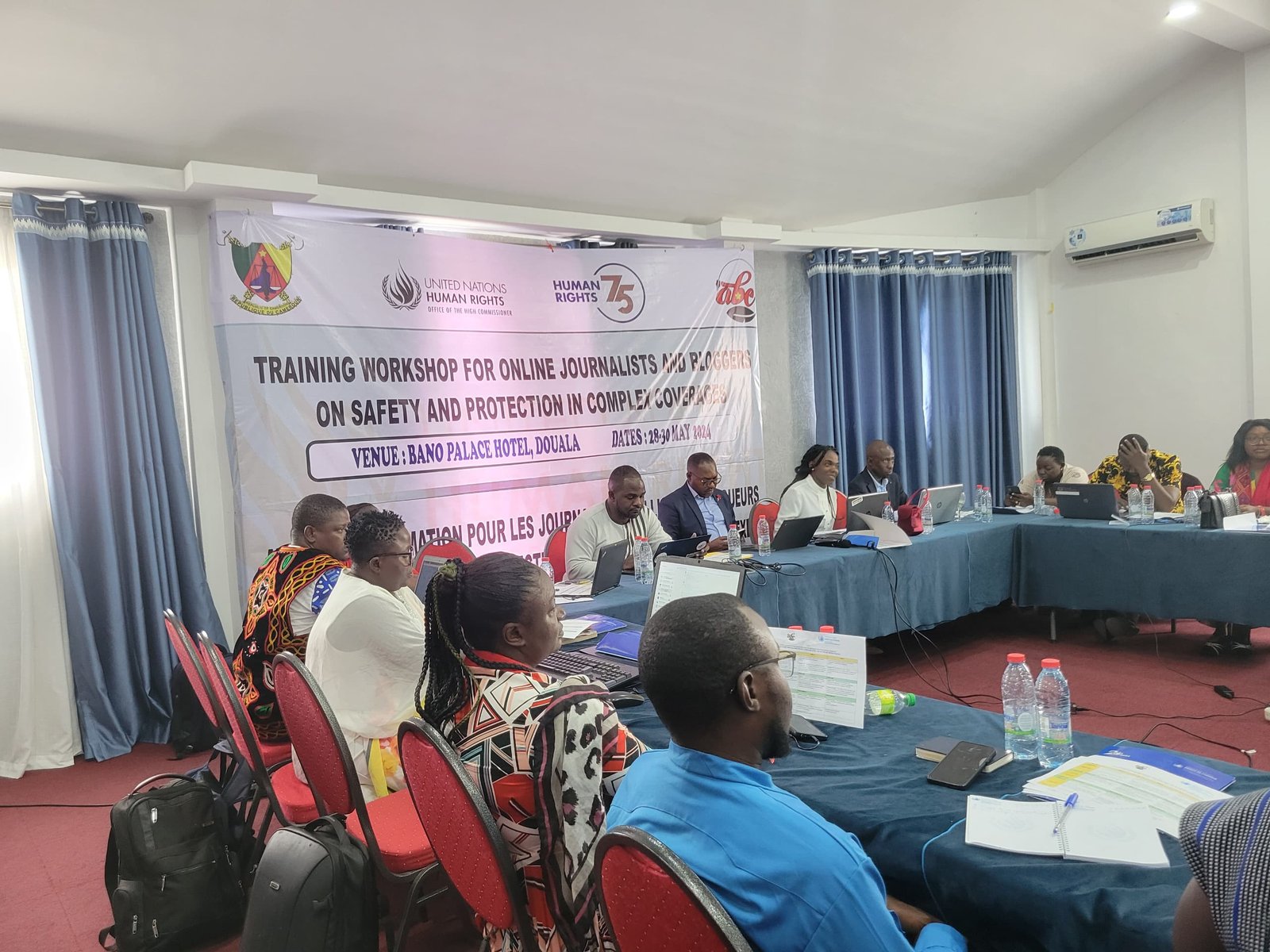
This resolution adopted in May 2015 by the United Nations Security Council emphasizes the protection of journalists and focuses on the need to combat impunity for attacks against journalists, enhance reporting on violence against journalists, and improve international coordination to strengthen their protection.
Tackling hate speech
On day three of the workshop, the Cameroon Association of Bloggers (ABC) dedicated a session on hate speech.
Donald Tchengang, member of ABC spotlighted the causes and consequences of hate speech in our society and the key role to be played by media professionals.

He shared some viral messages that are posted on social networks, and which often trigger many tribal conflicts between people.
As a trained digital expert, Donald Tchengang said media professionals especially those working online can combat hate speeches with interesting content.
It was once more the occasion to reiterate the crucial role that the media plays in fragile and complex situations, especially during sensitive periods such as the upcoming 2025 elections in Cameroon.
Online journalists and bloggers who are today positioned at the forefront with the advent of digitalization were called on to put in place some programs, frame and reshape their reporting in a bid to actively contribute in halting hate speech which is common nowadays on social networks.
Media professionals Equipped for future challenges
With the numerous sessions and in-depth training that were granted to the participants, they were just like in the previous workshop gathered in subgroups to brainstorm on how to pitch stories from a human rights angle and compile best practices that show their abilities to self-protection.
At the end of the workshop, Franklin Kiven Fonyuy expressed satisfaction after an intensive training which was marked by active participation, questions, and answers.
“During this three-day training workshop, we gave them all the different avenues for protection that are available to them as journalists and then we also worked on developing their skills while covering complex events, and how to handle these complex events from a human rights perspective. We also worked with them in such a way that they could tap from the experience of some veteran journalists. I think this kind of experience sharing has been one of the most exciting experiences that we have seen amongst journalists coming from different backgrounds and having experience in covering different kinds of events.” He said.
As a prolific reporter and trainer specialized in Human Rights issues, Tarhyang Tabe shared his experience with other participants.
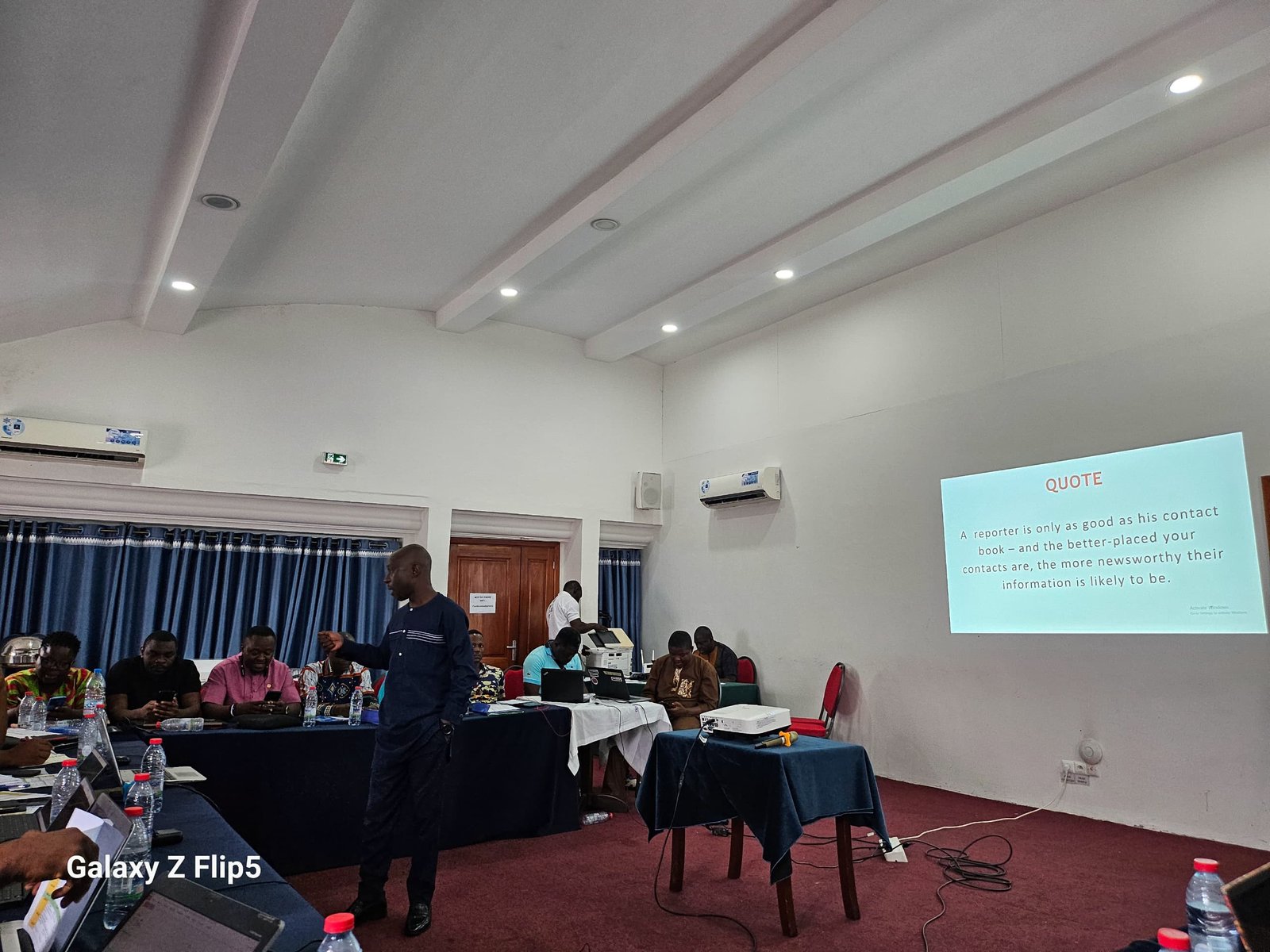
The journalist and news publisher said: “Journalists reporting in crisis zones have to be very careful. They have to take their work seriously and make sure they understand the particularities of the field, understand the crisis, and be conscious of what they are doing because they are not just reporting as journalists, they are reporting in a humanitarian context. Reporting in a humanitarian context gives them the latitude to be able to choose what and what not to report on. It is not a must to report what others are reporting. We advise them to pick the angle that is going to suit their kind of reporting. They should make a difference and be sure there is an added value to their work, to be able to as much as they can be balanced and very professional. And above all, they should protect and take care of themselves as they go to the field to report in crisis time.”
“We are working in a crisis context where we will have elections anytime soon, and this will be mixing up with the crises in the North-West and South-West regions as well as those in the Far-North and East regions of the country. All around Cameroon, we are in serious crises and journalists should be more careful during this period to stay alive and not die during their work.” He added.
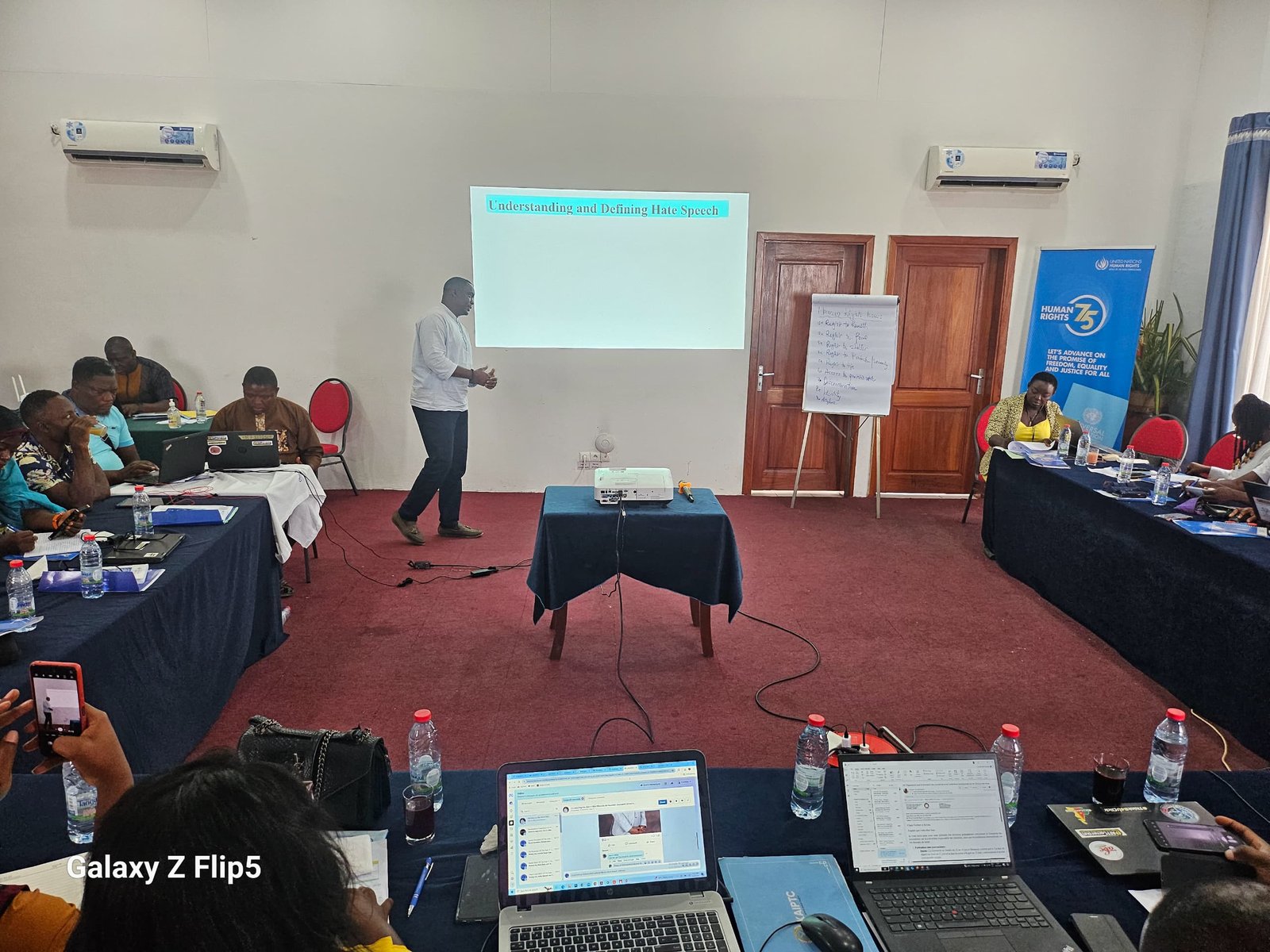
Having acquired the necessary skills to protect themselves in sensitive coverages, the participants who are passionate about human rights story-telling showed great interest in reporting on conflict and crisis zones, knowing they are henceforth well-armed.
Elise Kenimbeni




